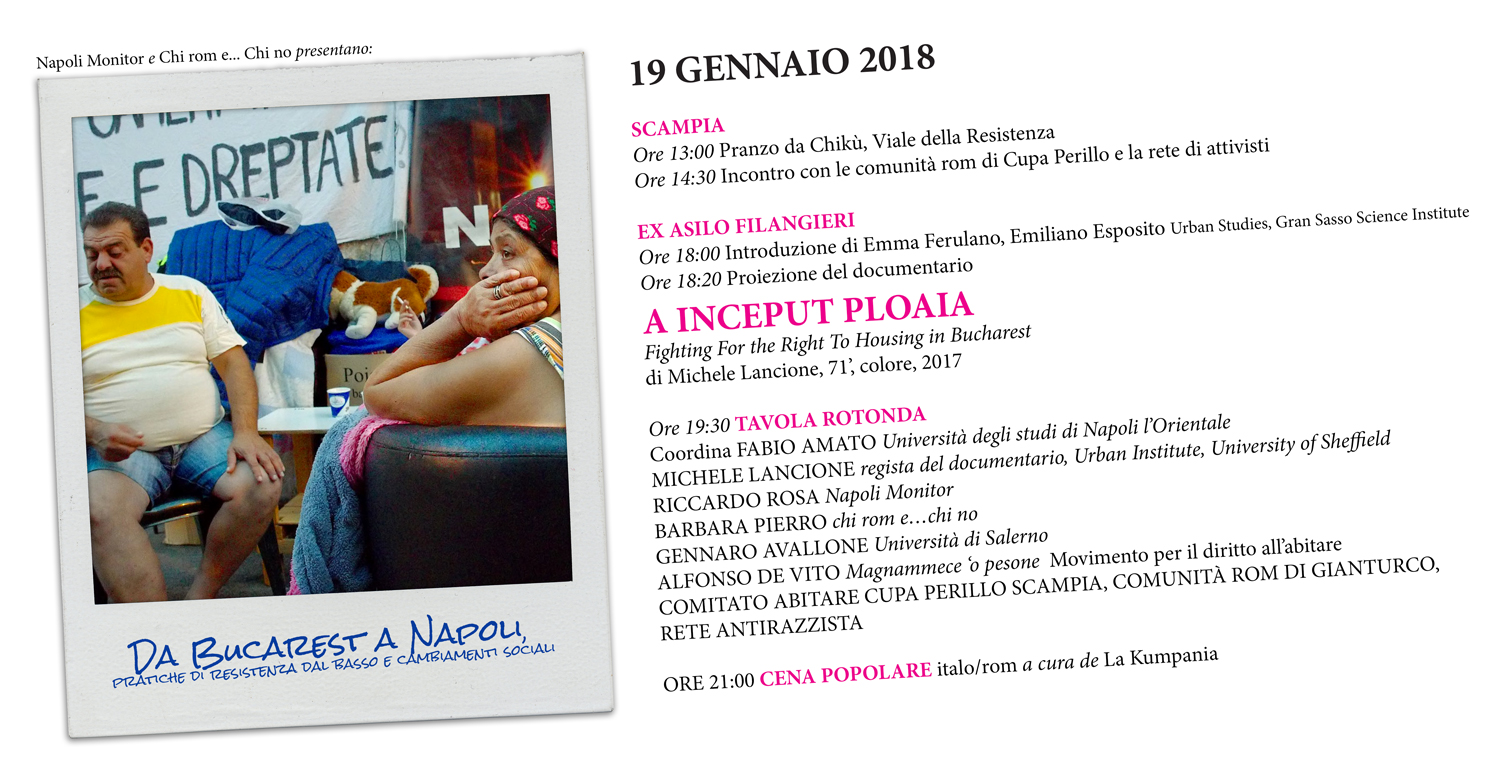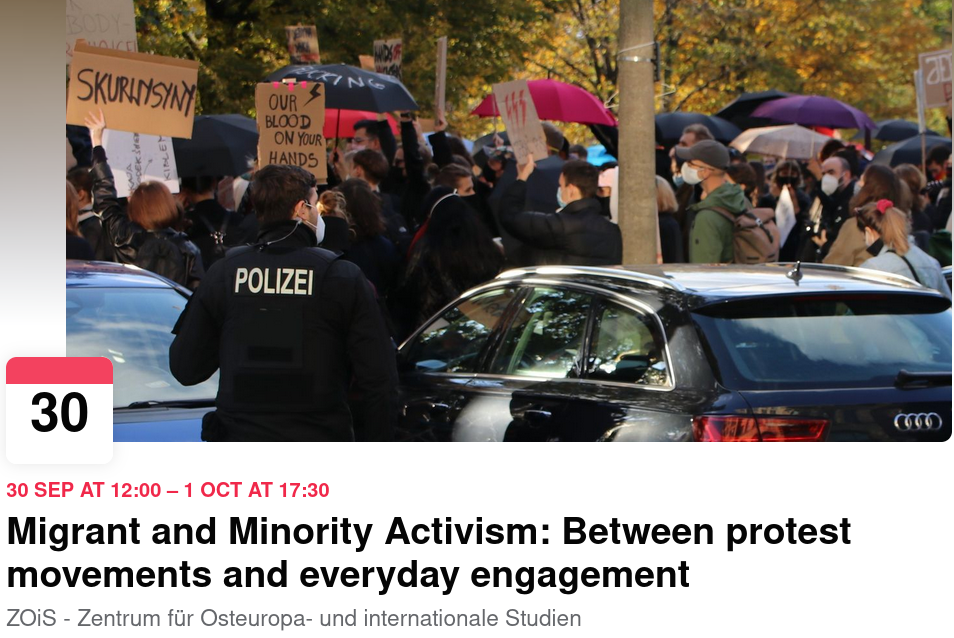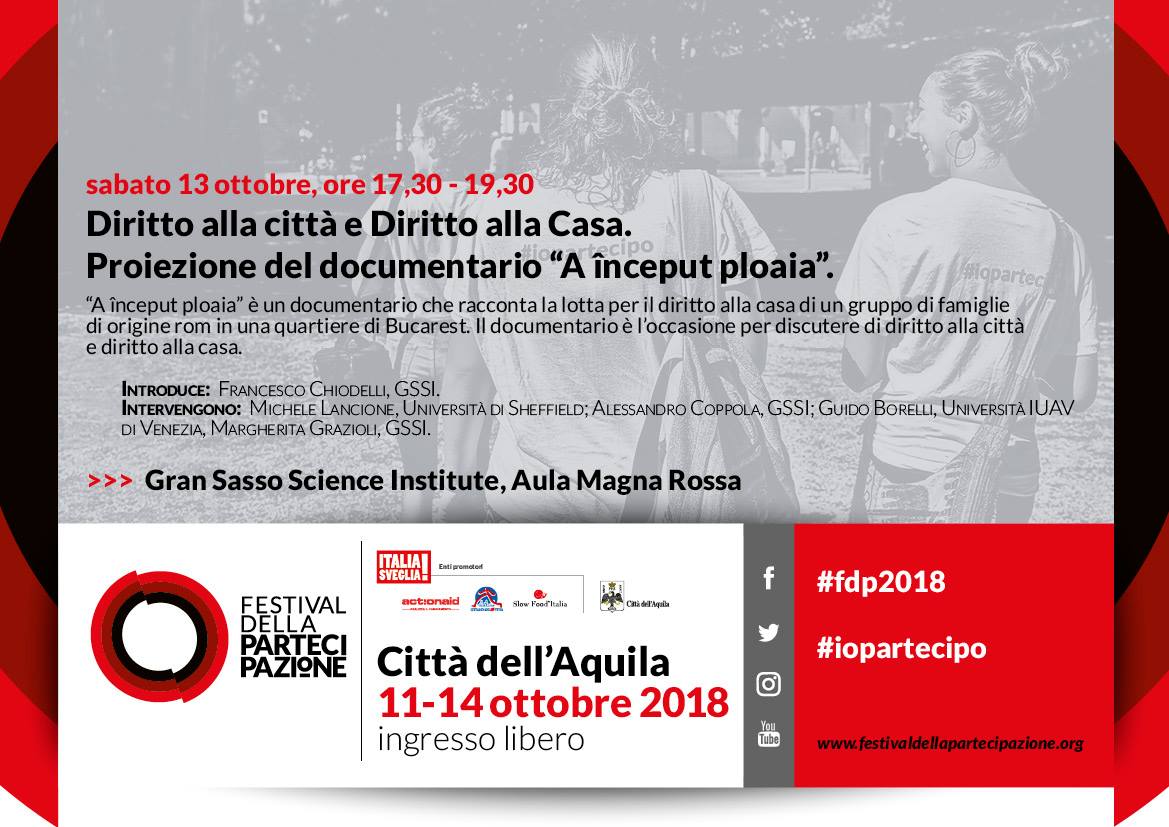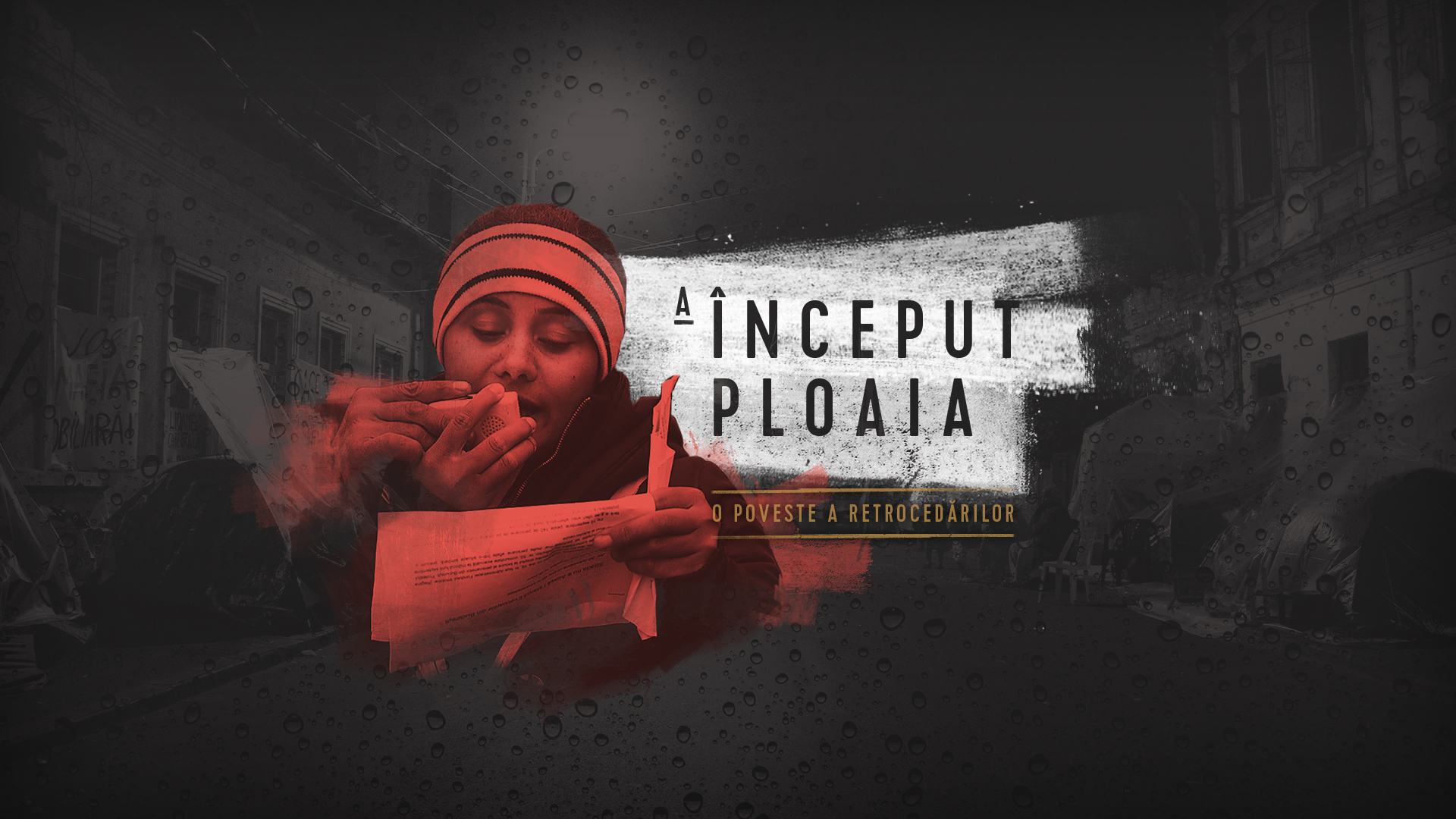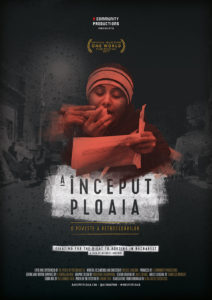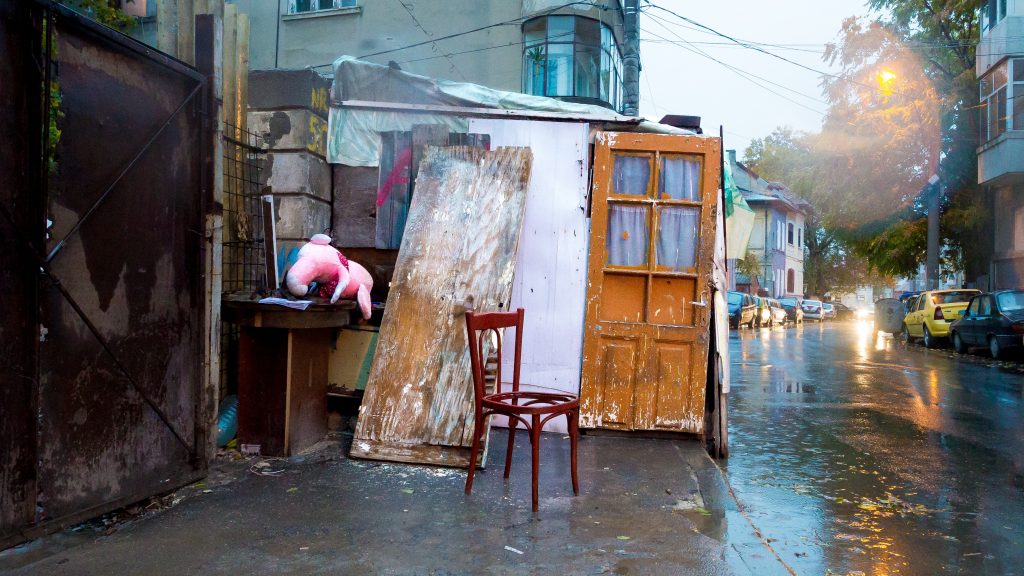
Several activist groups and communities concerned with the right to housing in Italy have organised screening of my documentary A inceput ploaia/It started raining in the peninsula. One of the aim of this film is precisely that of being used as a ‘excuse’ to allow for genuine discussion around eviction, displacement and the fight for the right to housing to take place in various locales across Europe. After similar screenings in Romania, Hungary, Croatia, the UK, Austria and more, I am particularly happy that this is happening, now also in my native country. From the 15 to the 19 of January 2018, screenings will take place in Rome (two times), Naples, Florence, and more will be organised in Milan and Turin.
The screenings in Rome and Naples are particularly relevant for the kind of political project that the film aim to sustain, which is part of my work with FCDL (The Common Front for the Right to Housing of Bucharest) Below you can find details of those. At www.ainceputploaia.com you can, moreover, watch the documentary in its entirety, with English, Italian and Hungarian subtitles (for subtitles other than English, please go instead to the Vimeo page of the film, here).
16th January, Rome – From 6pm at the Squat Metropoliz
Starting from 6pm, we will meet at the squat Metropoliz (which host also the self-managed MAAM). After an aperitivo we will screen the film for the inhabitants of the squat, and in particular for the Roma people living in there (who moved there after having being evicted from a Roma camp some years ago). The idea is to stimulate a debate around the living conditions of Roma people in Rome but also to allow for the Roma of Metropoliz to express their sentiments about the occupation and other political strategies of resistance.
Thanks to my friend and excellent photographer Valerio Muscella for organising the event.
17th January, Rome – From 9pm at the Cultural Centre Apollo Undici (via Bixio, 80/A) (Info on Facebook)
Always in Rome, this time at the ‘Centro aggregativo’ and cultural centre Apollo Undici, for a screening that will be followed by a debate featuring the most active, grassroots, voices fighting for housing in the Italian capital. Thanks to the organising efforts of Sandra Annunziata, of EtiCity, a number of incredibly interesting people will take part to the discussion following the film. These includes: the evicted inhabitants of via Curtatone, activists for the ‘Coordinamento di Lotta per la Casa, activists of Action and of Spin Time, representatives from the Sportello di Lotta per la Casa of Magliana, of the anti-eviction network, and of the ‘Comitato Abitanti Milano Sansiro e Asia Milano’.
Thanks to Sandra Annunziata for the organisation, to Giacomo Ravesi for allowing this to happen in the spaces of the Apollo, and to my friend Claudia Meschiari for her original idea and continous support.
18th January, Florence – from 6pm at Complesso le Murate (via dell’Agnolo)
This will be a screening and a debate organised for PhD students, focused on participatory visual methods. Giovanni Attili (who worked extensively on visual and participatory methods with Leonie Sandercock) will act as discussant.
Thanks to Francesco Chiodelli and the GSSI for the invitation and sponsorship.
19th January, Naples – From 1pm in Scampia and then screening and debate from 6pm at the Ex Asilo Filangieri (Info on Facebook)
This time in Naples, one of my favourite city par excellence, for a full day of talks, debates, screening and food. The screening has been organised at a time of political tension in the city in relation to the housing need of its Roma people. In particular, the aim of this screening is to boost the debate around the conditions of two communities or Roma living in the areas of Scampia and Gianturco. The first, in particular, have faced evictions and relocations, and are now living in very precarious conditions (like many other Roma in the city). To the full day of activities – including a walk in Scampia, meetings with the community and a large debate in the evening – have been invited key figures of this struggle, from local activist to representatives of the affected communities. Below the detailed flier of the event.
Huge thanks to Emiliano Esposito (GSSI) for the idea and effort, to Emma Ferulano for the excellent organisation, to Fabio Amato and to all the other friends from Naples for the energy, time and effort put into this event.
